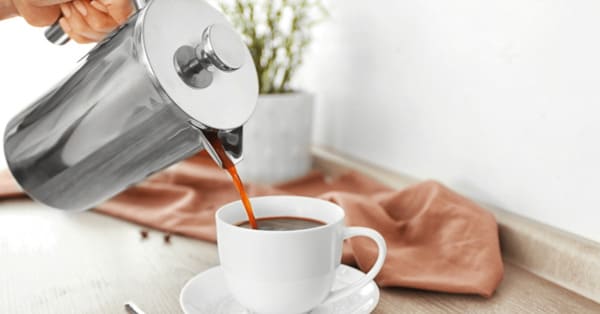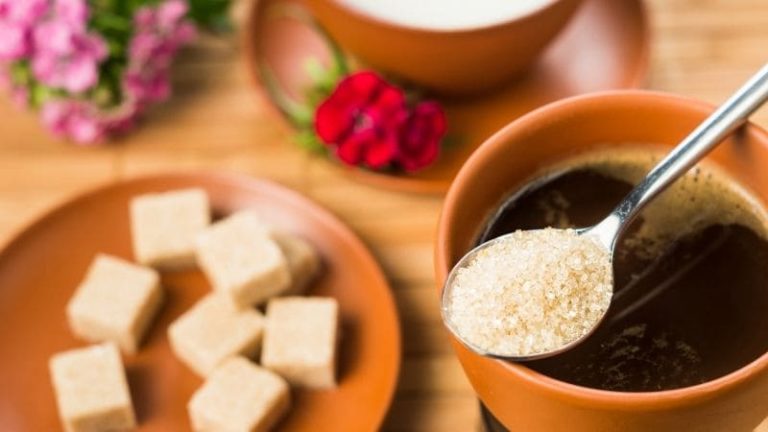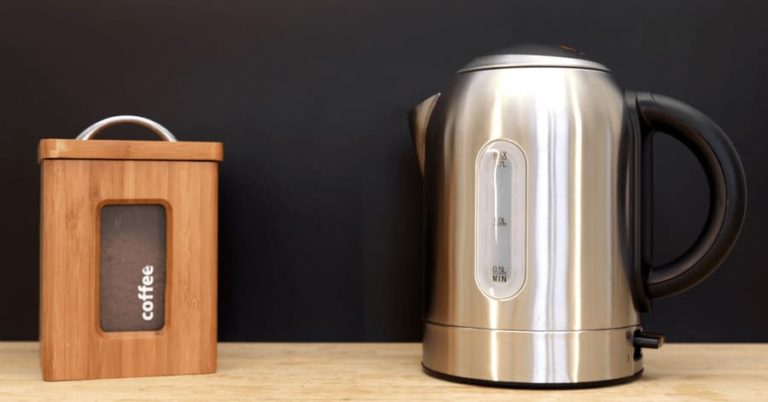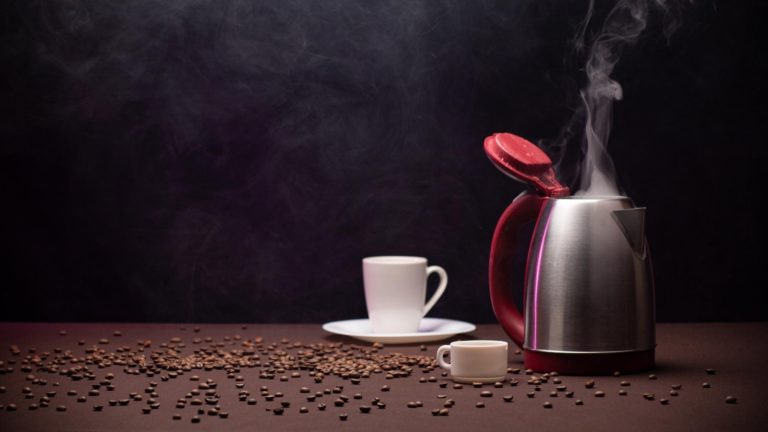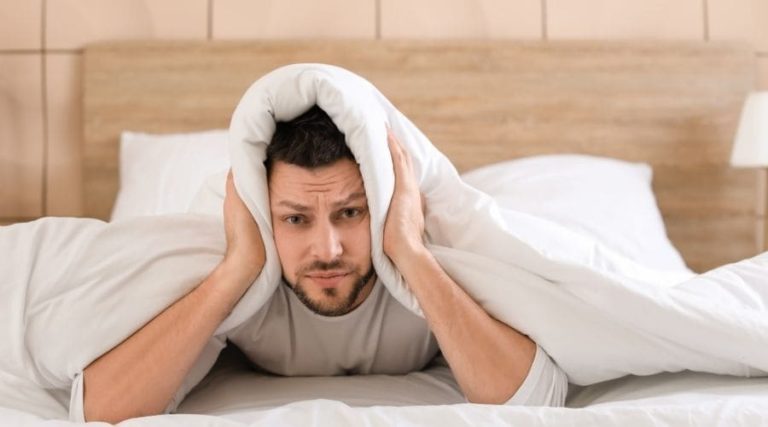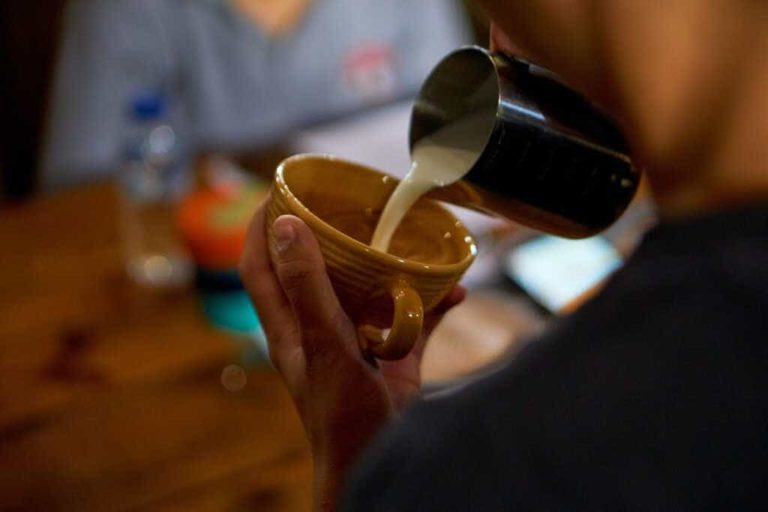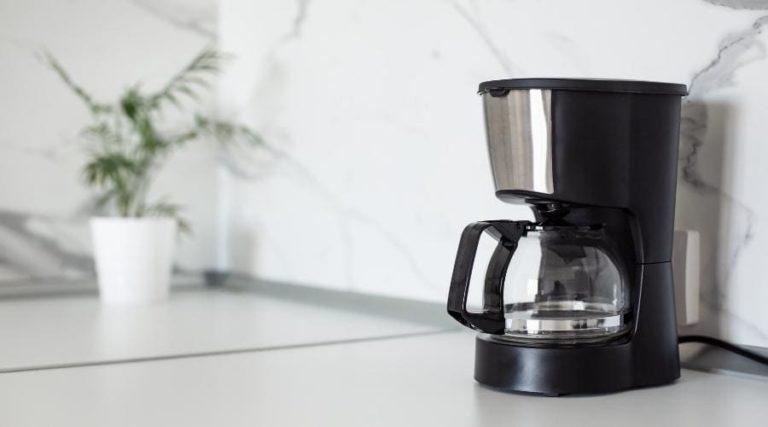Watery, Weak, and Winey – just some of the words that you often hear about coffee made in a Percolator. A coffee device that most repeatedly gets a bad reputation with coffee geeks, and all those coffee geeks will agree with this as well – when it comes to that bold, delicious tasting cup of coffee, the Coffee Percolator is also undefeated.
Why is your percolator making weak coffee?
More often than not, it’s not because of the system of percolation itself, but in the making process. It could also be that your Percolator is not the best quality. In fact, there isn’t much that can go wrong with a process as simple as percolation – and so it has to be something external.
Confused? Don’t be. I am here to answer all your Percolator-related questions and solve the mystery of weak coffee for you, one tip at a time. All you have to do is read on.
Before we get to the solution, let’s talk about how a percolator actually works.
How Does a Coffee Percolator Work?
A Coffee Percolator is a simple mechanism made up of three parts – the boiling chamber below the water pot, the filtering basket for coffee grounds, and a tube that sends up the water.
In simple terms, the water which is stored in the bottom part of the Percolator gets heated up and travels up through the pipe to the top of the mechanism. It is distributed by perforations at the top of the pipe and is allowed to drop back down through the coffee grounds taking on their flavors, taste, and aroma.
This process happens a few times eventually resulting in a perfect pot of bold coffee.
With technology, the Stovetop Coffee Percolator was transformed into an efficient, self-functioning Electric Percolator. The advanced device also essentially works according to the same process, but it has a timer attached to it and needs much less babysitting.
It also does not require a direct heat source like a stove or a hot plate and uses electricity to function, naturally becoming very popular with travelers due to its portability.
There are several types of Electric Percolators now available in the market that are both extremely efficient and carry out percolation exquisitely.
Why Your Stovetop Percolator is Brewing Weak Coffee
The process of coffee percolation is fairly simple and efficient that almost always results in perfect coffee. However, sometimes due to external factors or faults in the machine itself, a Stovetop Percolator doesn’t quite work as perfectly and ends up producing less desirable, watered-down coffee.
Here are some of the reasons for your Stovetop Percolator producing mediocre or worse coffee and completely ruining your morning.
Not Enough Coffee
I know it sounds way too simple, but one of the main reasons for a weak cuppa from a Percolator is not enough coffee. I recommend using at least 2 full tablespoons of coffee grounds in your Percolator for a cupful of strong beverage.
If you need something stronger, feel free to add another half a tablespoon.
Brewing Time
Another common mistake that people make, especially with stovetop Percolators, is the amount of time the coffee is allowed to brew.
If you don’t give the water enough time to rise up and drip through the coffee grounds at least 2-3 times, your coffee is going to be extremely watered-down and weak.
On the other hand, too much time on the stove will result in an over-extracted and hence extremely bitter-tasting beverage.
Check Your Heat Source
Make sure that the heat source is working perfectly and is on high heat when using a Stovetop Percolator to make your coffee. The ideal coffee brewing water temperature is around 195-205 degrees or about 30 seconds just after the point of boiling.
A Stovetop Percolator, as I mentioned before, will need a bit of babysitting to make sure that the water is traveling through the machine as it should be.
Bad Quality Coffee Beans
I’ve said this time and again, and I’ll say it again – you cannot get quality coffee from cheap, low quality coffee beans. Always use the best quality beans that you can find.
Additionally, try both Arabica and Robusta beans and see which one works best for your personal taste. Robusta tends to be a bit bolder and stronger, and therefore, I personally always prefer Arabica.
However, don’t just take my word for it – go out and experiment a little!
Wrong Grind Size
For a Percolator, the coffee beans should be coarsely ground at the highest setting. This allows the bed of coffee grounds at the top of the machine to be porous enough for the water to drip through.
If the coffee is too fine, the grounds may slip through the filter into your coffee causing it too grainy or may not allow the water to pass through at all.
Wrong Roast
In addition to the quality of coffee beans, it is also advisable to use the preferred roast – dark, medium or light, with dark producing the strongest flavors and light being on the slightly easier side.
This may take a bit of experimentation to arrive at but choosing the roast that works best for your taste makes a huge difference.
Reasons Why Your Electric Percolator is Brewing Weak Coffee
There is not really that much of a difference between a Stovetop Percolator and an Electric Percolator, except that the latter is a bit more self-sustainable and requires much less looking after while it does its job.
However, that doesn’t mean that you can use the wrong amount, type, or roast of coffee and it will work fine. You still need to be mindful of how you are going about the process.
Here are some of the things that could potentially be going wrong with your Electric Percolator.
Amount, Type and Size of Coffee Grounds
As I mentioned, the requirements for the coffee amount, type and size are pretty much the same regardless of the type of Percolator you are using.
Always use at least 2 tablespoons (or more) of coarsely ground quality (according to your personal preference) coffee, and there is no way you could ever go wrong.
Invest in a Quality Machine
Not only is the quality of the beans important in the case of an Electric Percolator, but the quality of the machine you buy is also equally vital.
A mediocre quality Electric Percolator may not be pre-programmed correctly or may become faulty very quickly. If I had to recommend a quality percolator, I would go with the Presto 02822 (The latest price on Amazon), It’s a stainless steel electric percolator that brews between 2 to 6 cups of fine coffee.

Check Your Machine
While the heat source may not be an issue with an Electric Percolator, the mechanism itself can be faulty and ruin your beverage. Like with any other electronic appliance, an Electric Percolator can also be damaged due to voltage fluctuations or short circuits. This is especially common if you travel with your Electric Percolator.
Always make sure that the machine is working correctly before you begin the brewing process.
How to Make Strong Percolator Coffee
Now that we have the culprit cornered and all problems resolved, let’s talk about making sure your Percolator always rises to the occasion, and in this case, the occasion being a delicious cup of bold, aromatic perked up coffee.
Percolator Coffee Grind Size
As mentioned earlier, you must always use coarsely ground coffee for your Percolator, whether stovetop or electric. The trick is to make sure the grinds are big enough to create a porous or perforated bed at the top of the pot to allow the water to drip through.
Think of it as a filter drip coffee, but the filter is made up of coffee instead of paper or any other material.
If you are grinding the coffee beans at home, make sure to use the highest grind setting. If you are purchasing pre-ground coffee, ensure that you choose the coarsely ground kind.
Percolator Coffee Brewing Time
The brewing time or the amount of time you give the Percolator do its job is very important. The mechanism takes the water up to the highest point where it slowly drips down back into the pot as a brown aromatic liquid. Allowing the percolator to repeat this process at least 2-3 times is the only way to avoid watery coffee.
How Long to Percolate Coffee on Fire?
A Stovetop Percolator generally takes about 5 minutes to produce a perfect cuppa. In these 5 minutes, it is able to circulate the water within the pot 3 times resulting in a dark, bold beverage.
If you like your coffee bolder than normal, you can leave the pot on direct heat for 7 minutes, but not a second more. If your water gets too hot or if there are too many circulations, there is a risk of over-extraction.
How Long Should an Electric Percolator Perk?
An Electric Percolator can take 7-10 minutes depending on the brand and model you own. For the electric appliance, do make sure to read the manual to properly identify the correct brewing time.
There may be models that can get the job done in less than 7 minutes, while others that might take more than 10 minutes.
How Much Coffee to Use in a Percolator
The perfect amount of coffee grounds recommended for both types of Percolators is two tablespoons or more (per cup). However, it may vary depending on the amount of coffee you are making and the intensity that you desire. This may take a while to figure.
As I always say, experimentation is key. But once you have it sorted, it works like a math formula every time and results in cups of joy all around.
Best Coffee for a Percolator
If you are a Percolator newbie, I would always suggest starting out your journey with a quality medium roast. A dark roast may be too bold for a beginner, while a light roast may not give you a taste of true Percolator Coffee.
If you are a regular, you probably already know the roast and brand that works best for you – stick with that. A tried and tested flavor never fails, especially not in a Percolator.
The only thing you need to make sure of is that the coffee beans (or pre-ground coffee) are coarsely ground. If you are looking to try out new brands, my top suggestions would be Koffee Kult Medium Roast Coffee for those that like nutty tastes and Kicking Horse, and Three Sisters Medium Roast Coffee for those that like more chocolaty notes.
Can You Percolate Coffee Twice?
Technically, yes. However, you need to be aware that the second batch may be slightly weaker since most of the flavor would have been extracted from the grounds in the first round.
If you are using a fairly strong, dark roast, you might not feel the difference so much, but I would not recommend it with a light roast, or even with a medium one that does not have a strong flavor profile, to begin with.
How to Make the Best Electric Percolator Coffee?
Hopefully, you haven’t suffered from an information overload by now. But even if you have, just get yourself a cup of coffee and keep reading. This is important, especially if you have an Electric Coffee Percolator.
? Pro Tips for Electric Percolators:
Here are some great tips to make sure you get the cup you deserve every single time from your Electric Percolator:
There are a lot of advanced Electric Percolators available in the market that give you lots to choose from. For most models, you are able to pick the quantity as well as the brewing strength. However, unfortunately, there is no “one size fits all” formula that can be used to make sure your machine always churns out perfect coffee.
The best way to ensure that is to experiment with the different brewing strengths and types of coffee you have available. Try and try until you find your magic formula, and then just relax and let the machine do its magic.
? The water to coffee ratio can get tricky when it comes to heavy-duty Electric Percolators that have large capacities. Whenever in doubt, use the 8:1 ratio, that is for every 8 ounces of water or 1 cup, use 1 tablespoon of coarsely ground coffee.
? If you are still not convinced, take a look at the instruction manual. A good Electric Percolator will usually prescribe the water to the coffee ratio for the various number of servings it is able to make. Take the prescribed amount as the base, and you can adjust the amount according to your own taste preference subsequently.
? Always clean the equipment properly after every brew – make sure that you unplug it after brewing and let it cool down before you begin cleaning. Any grounds that may be left behind might extract bitter oils into your next cup causing it to taste acidic. The leftover ground may also ruin the taste of your coffee completely.
Final Thoughts
People may say it’s outdated or too complicated, but there is a certain charm to Percolators and the coffee they produce that cannot be reproduced by any other machine.
And that’s why I always keep my Percolator close to my heart for that Monday morning when I need something extra.
Hopefully, some of the advice in this article helped you narrow down the issue with your own Percolator and has assisted in rebuilding your relationship with your magic pot.
Do you have a history with Percolators? Share your stories with the coffee community here! We all want to know about your adventures.

